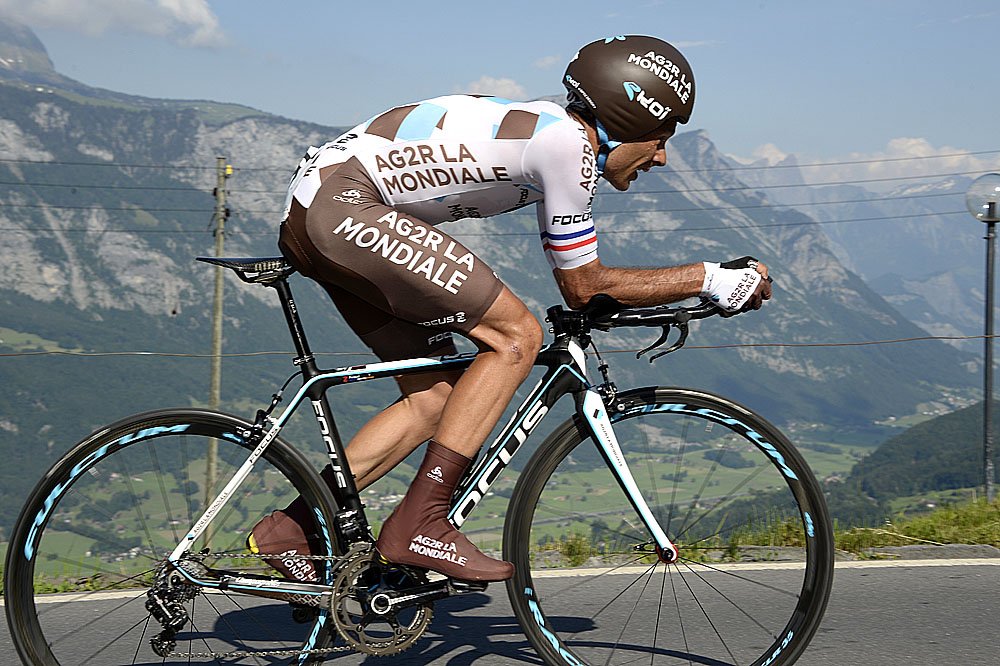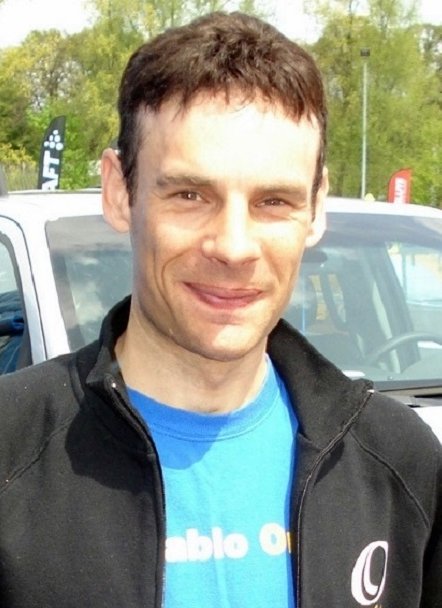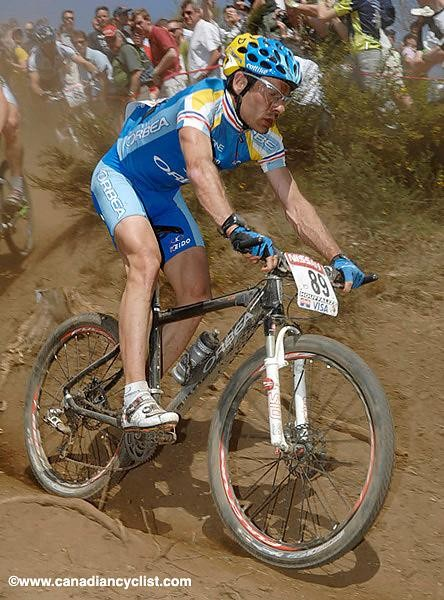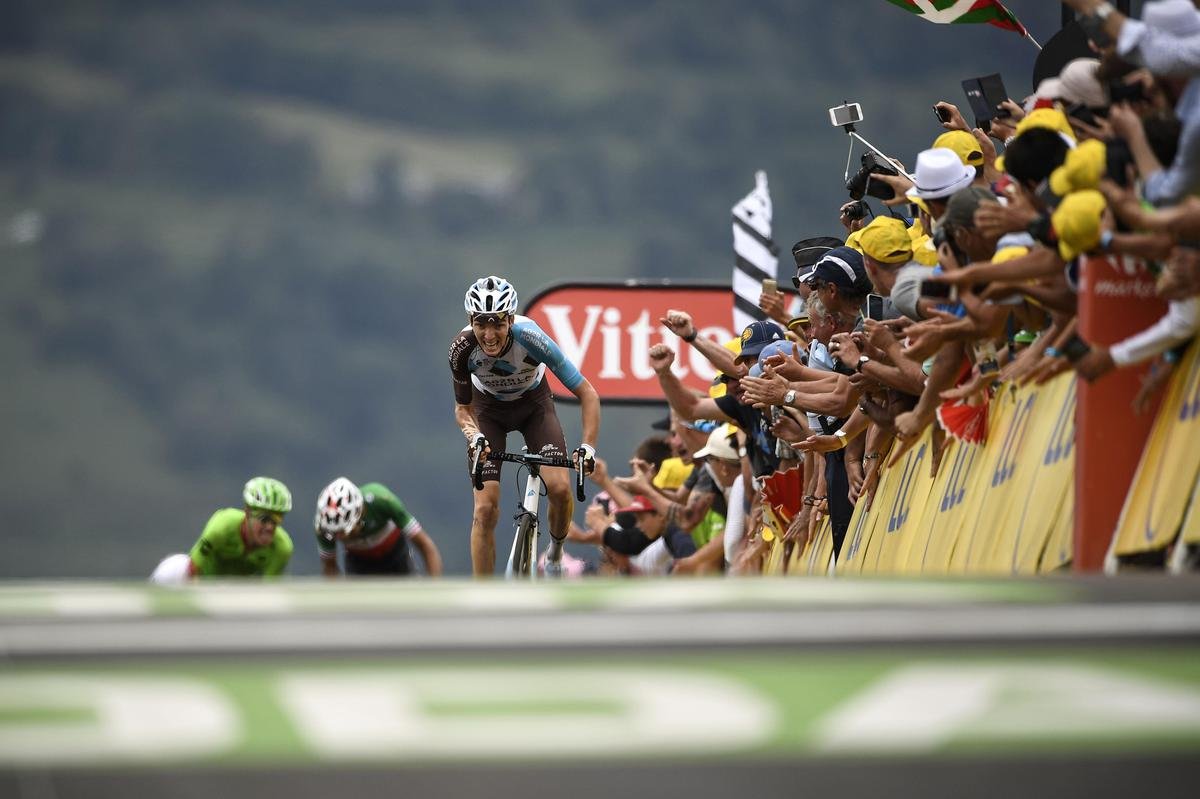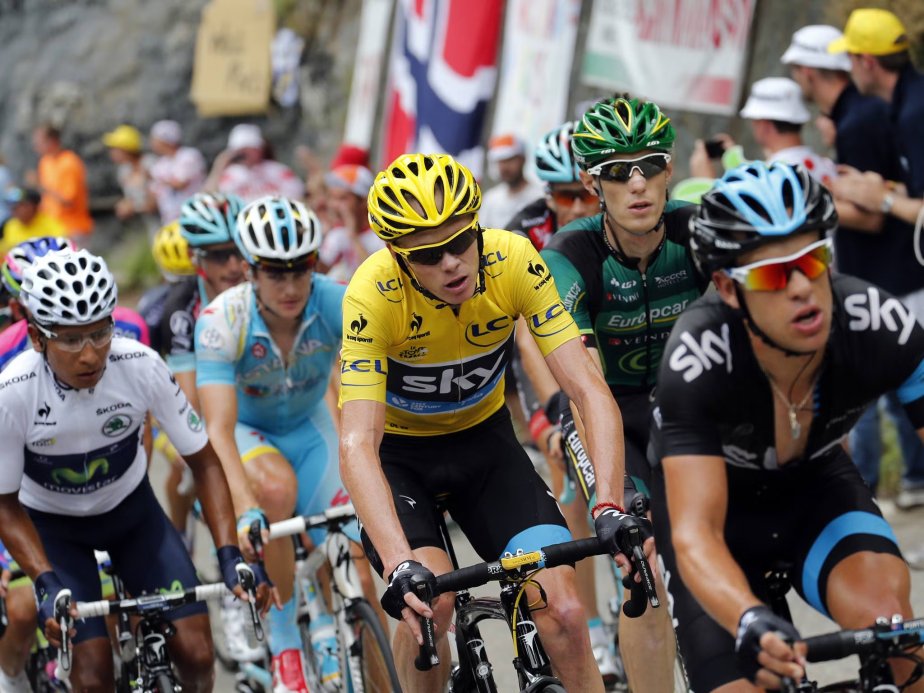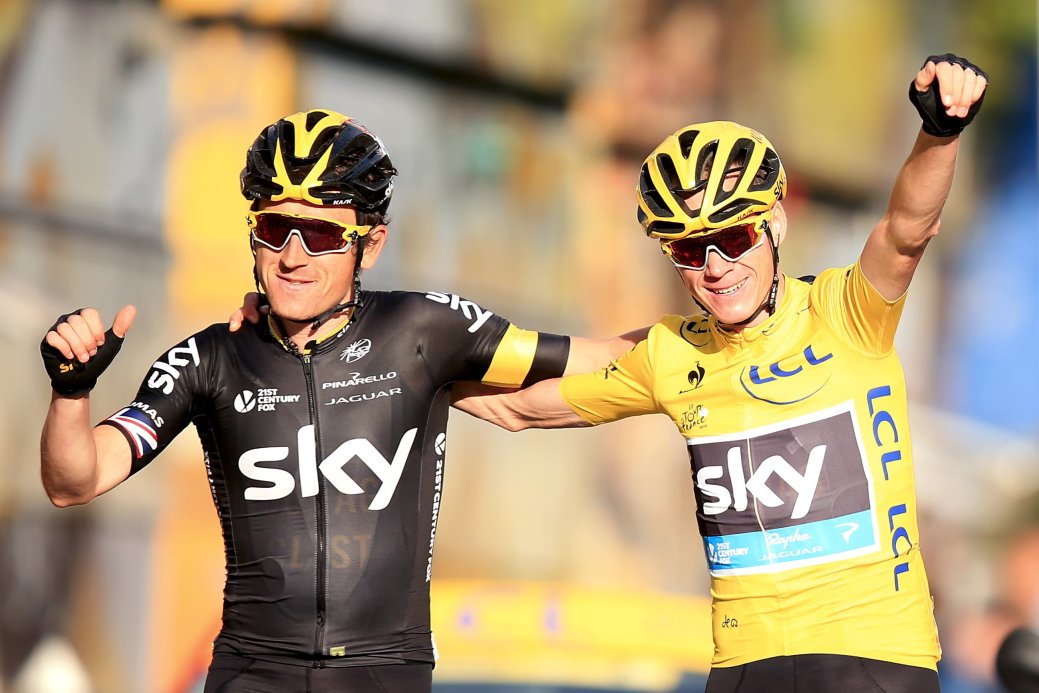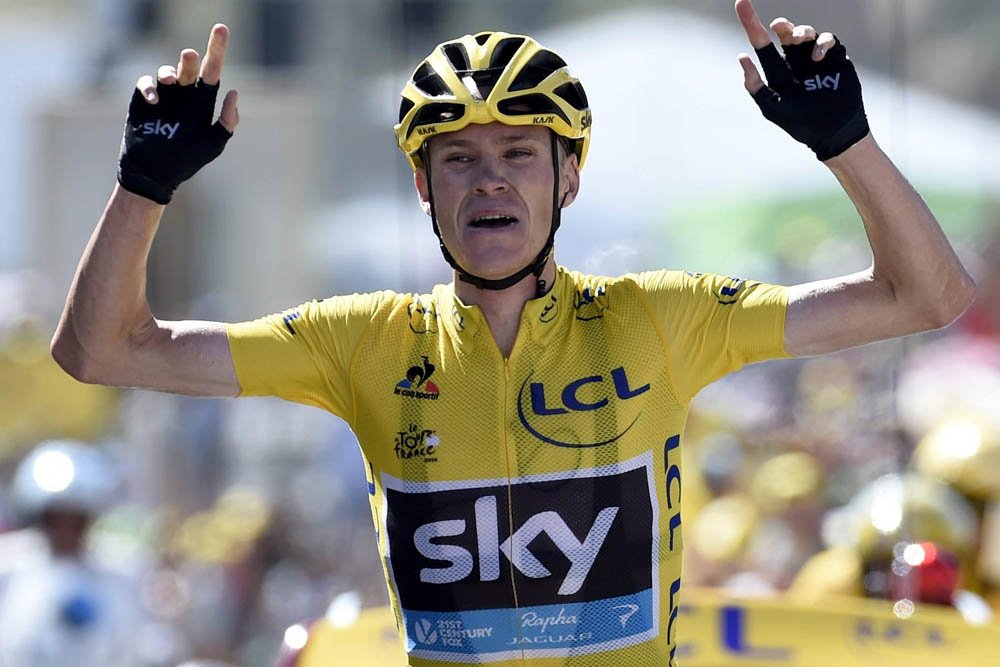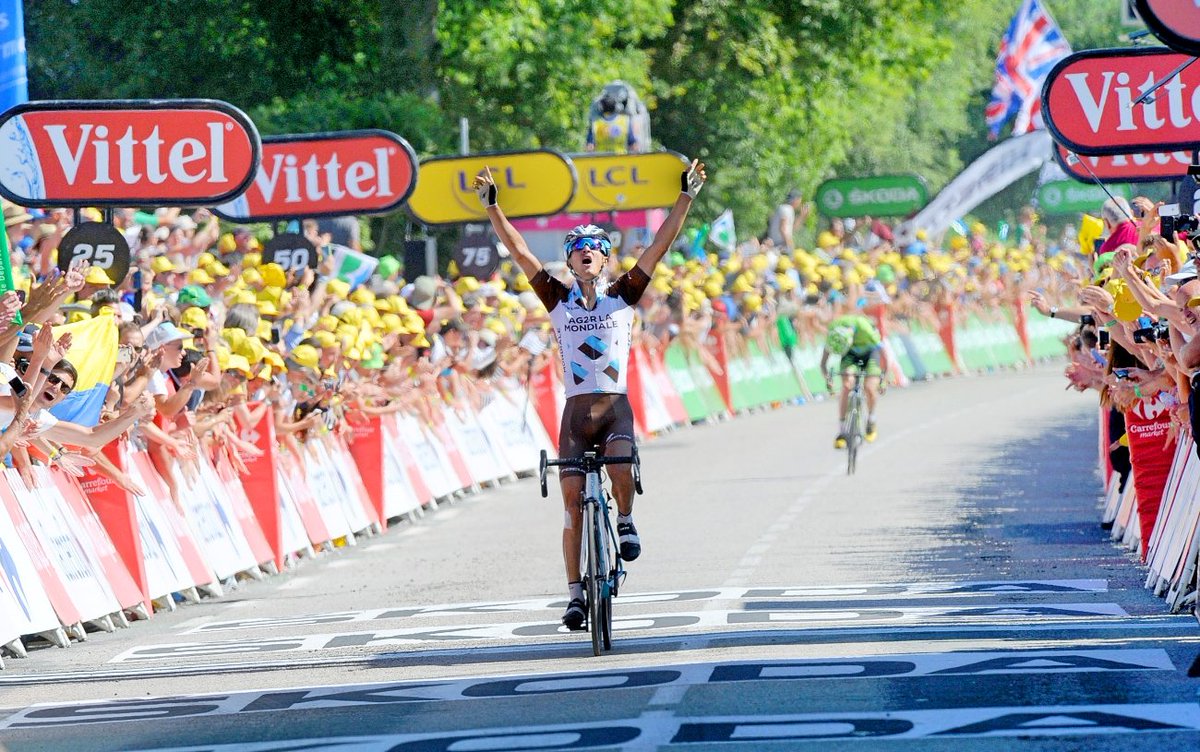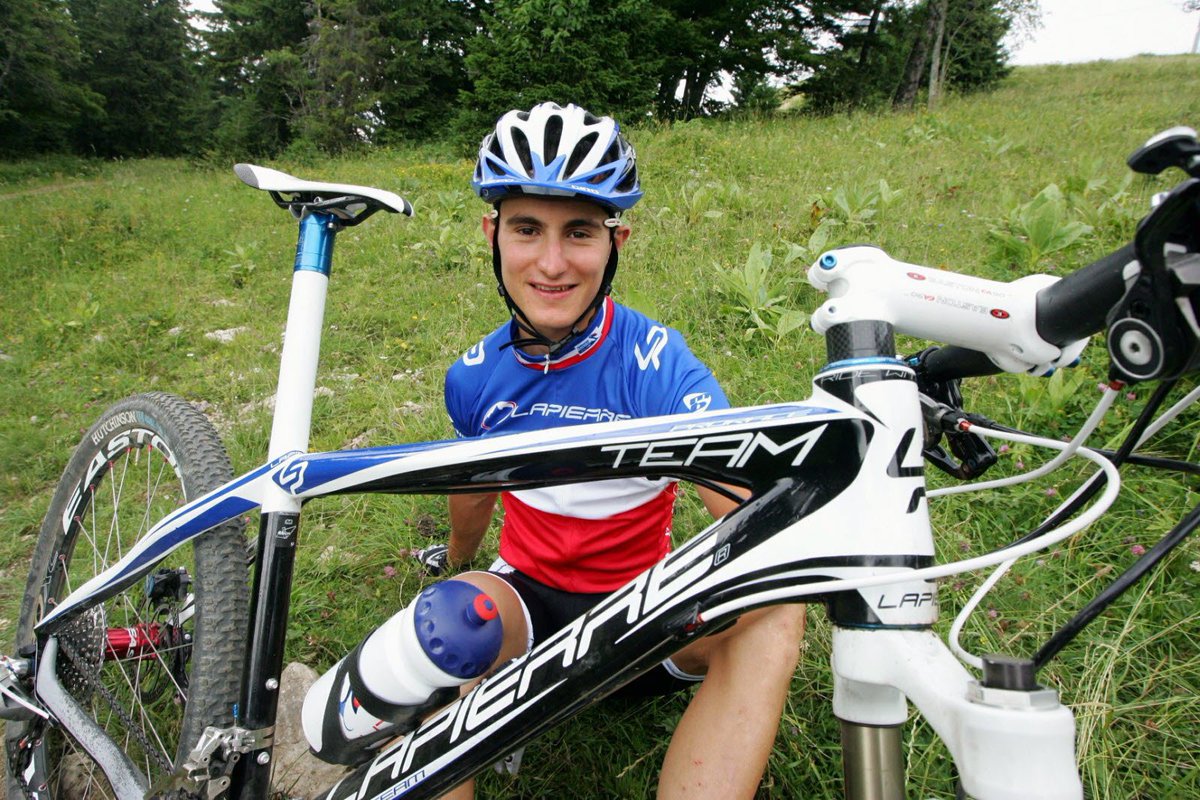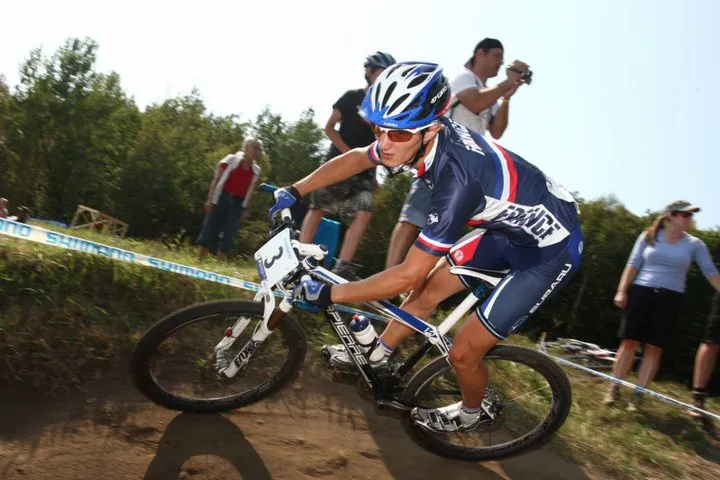Explaining the cycling iceberg: When Ullrich anahilated the opposition on Andorra Arcalís. 1/18
#cyclingiceberg

#cyclingiceberg


Team Telekom started the 1997 Tour de France as the team to beat. In 1996 they had finished 1st & 2nd in GC with Bjarne Riis & Jan Ullrich. They opted for the same strategy as the year before. Riis would defend his title, with Ullrich as his super domestique. 2/18 
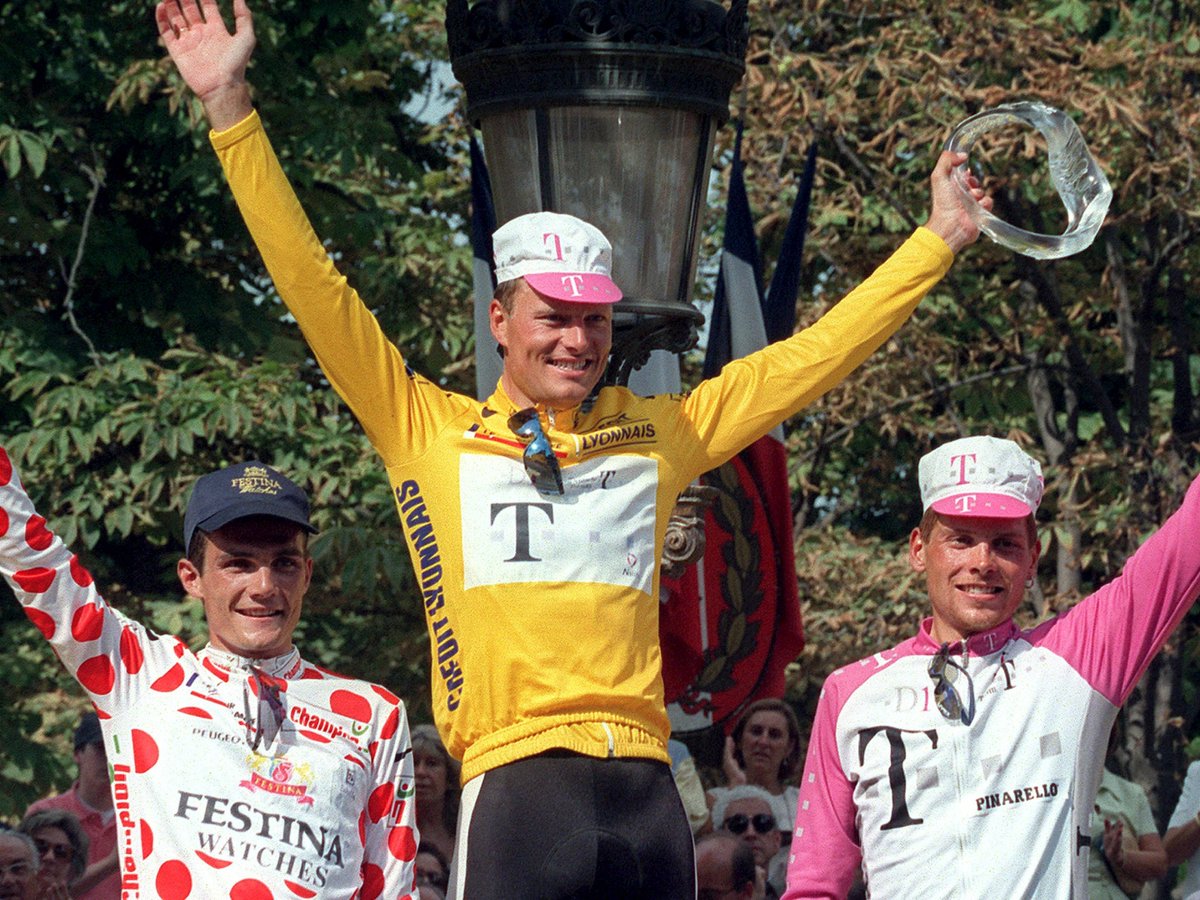
Climbers Marco Pantani (Mercatone) & Richard Virenque (Festina) were seen as the other favorites, but were expected to lose a lot of time to Ullrich, if he was allowed to race for himself, in the 130km of TimeTrails in the race. 3/18 

The Tour started with a prologue which was won by specialist Chris Boardman, 2 seconds ahead of Ullrich. In the first real stage there was a crash towards the end of the stage. Riis was held up and lost a minute, but he was still convinced he would be the leader of Telekom. 4/18 

The riders hit the Pyrenees in the 9th stage. Ullrich worked for Riss, but the Dane was dropped when Virenque attacked on the Azet. Ullrich managed to stayed with Pantani & Virenque. In the downhill Laurent Brochard (Festina) came back and won the stage. Riss lost 35s. 5/18 




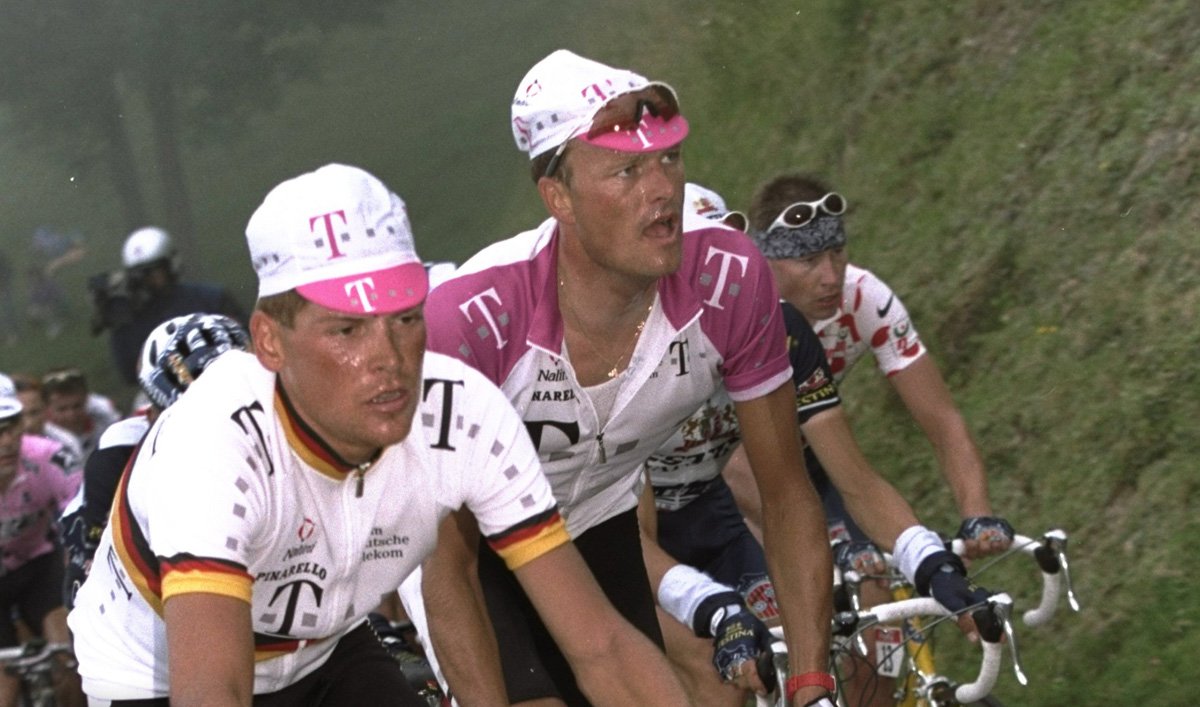
Ahead of the following stage Riss still said he was the leader of Telekom despite Ullrich being second in GC. Cedric Vasseur (GAN) had the maillot jaune after he won the 5th stage from the break. Things changed in that 252km stage to Andorra Arcalís. 6/18 

Ahead of the final climb, Riis told Ullrich that he wasn't feeling too strong & that he should race for himself. Ullrich wanted to make sure the team was onboard with this, so he dropped back to the teamcar where Walter Godefroot gave him the 'good to go'. 7/18 

Ullrich effortlessly came back to the peloton and hit the front to set a high pace. Virnque was the only rider able to follow. Ullrich's tempo was relentless. Out of every hairpin he put down serious power. With 10k to go Virenque was dropped. 8/18 

Der Kaiser flew to the top and took the stage win 1.08 ahead of Pantani & Virenque. Riss and the others ended more than 3 minutes behind. He had finally stepped out of the shadow of Riis. 9/18 

The 23 year old German now found himself leading the Tour de France. After the stage he said: 'It was not really an attack, more an acceleration. They said i did a great climb, but i could have gone even faster.' In the media he was presented as the new superstar of cycling 10/18 

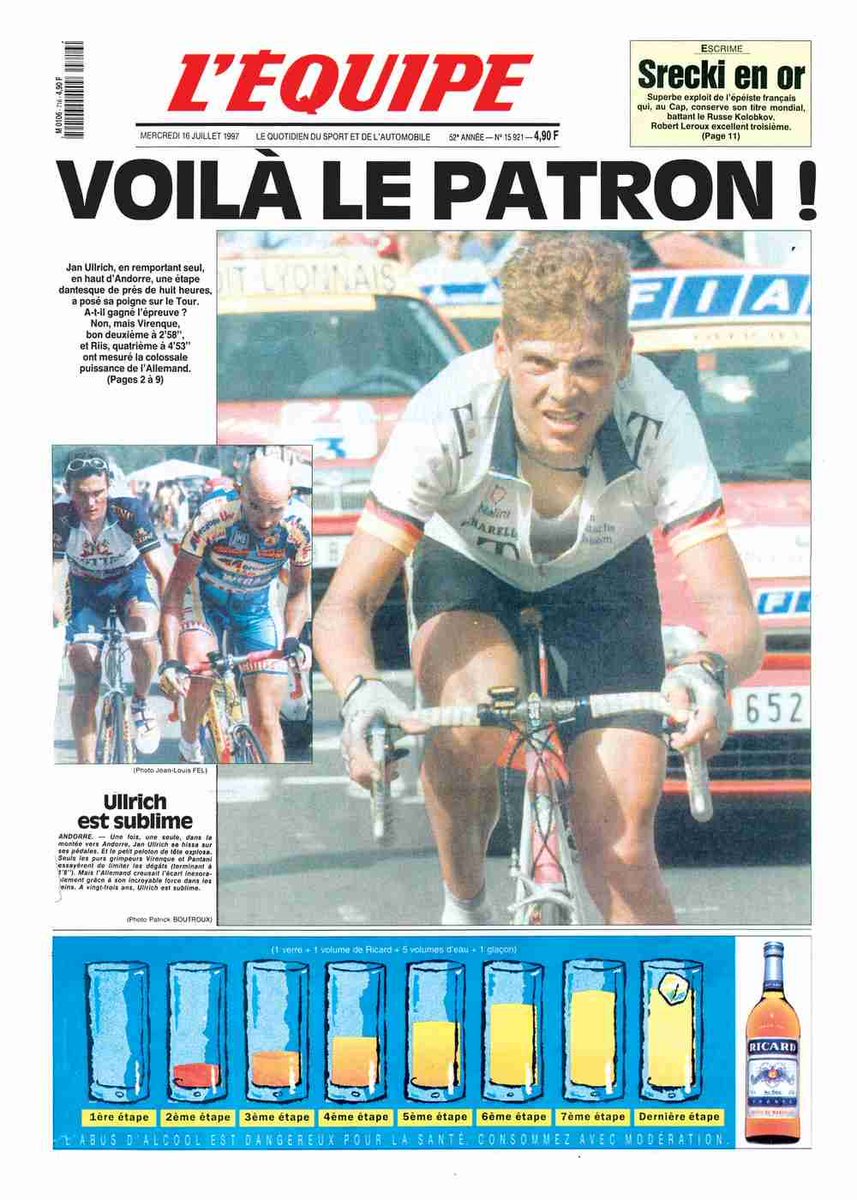

Ullrich doubled his lead of 3min on Virenque during the 12th stage. In the hilly TT around Saint-Etienne he caught the French rider on the road, who still managed to finish second 3.04 behind Ullrich. After the Alpe d'Huez stage Ullrich had a lead of 6.22 on Virenque. 11/18 

Virenque didn't want to give up without a fight, and launched a raid during stage 14. Virenque attacked with 5 teammates up the first climb, the Glandon. Ullrich followed but was isolated. In the downhill he made a mistake under pressure, and had to let the Frenchman go. 12/18 

Virenque opened a significant gap, but Ullrich stayed calm. He dropped back to the peloton, where his teammates started closing the gap. On the final climb to Courchevel Ullrich bridged the remaining gap. Virenque won the stage, but Ullrich was right in his wheel. 13/18 

Ullrich had survived the hardest stages, but got ill ahead of the 18th stage through the Vosges. Virenque & Pantani sensed something was off and attacked with 90km to go. They dropped Ullrich, and opened a gap of 30s. A coup looked to be in the air. 14/18
Udo Bölts was the only remaining teammate for Ullrich, and told him 'quäl dich du sau' (dig deep, you pig). Ullrich went deep, and as the cooperation up front was non existent, he managed to come back and save his yellow jersey. 15/18 

Virenque was furious about the lack of cooperation. After the sage he refused to speak to the Italian media because 'their rider' (Pantani) was a 'Wheelsucker'. Pantani hadn't done any work, despite a royal cash offer from Virenque. (old📸) 16/18 

Banesto was in the break with numerous riders, but refused to work. 2 days later it became clear why. Ullrich let Banesto's Olano win the TT. Telekom & Banesto shared a bike sponsor and had simply made a quid pro quo. 17/18 

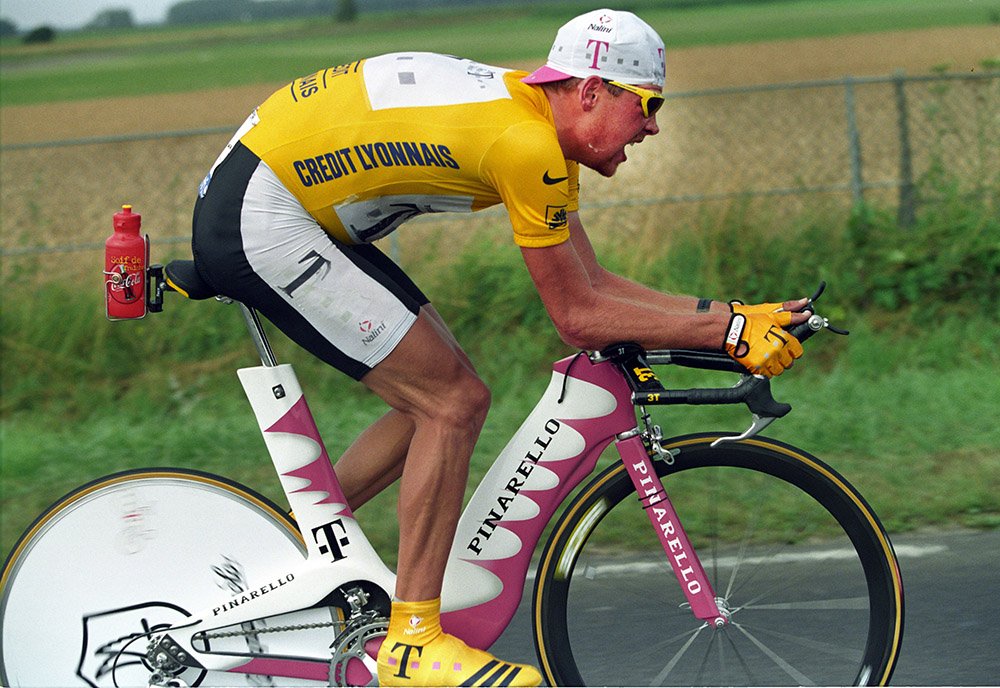

Ullrich won the Tour de France by over 9 minutes. Erik Zabel completed the German Telekom party by winning the green jersey. These successes created a wave of Ullrichmania in Germany. It sparked cycling's popularity in Germany. 18/18 



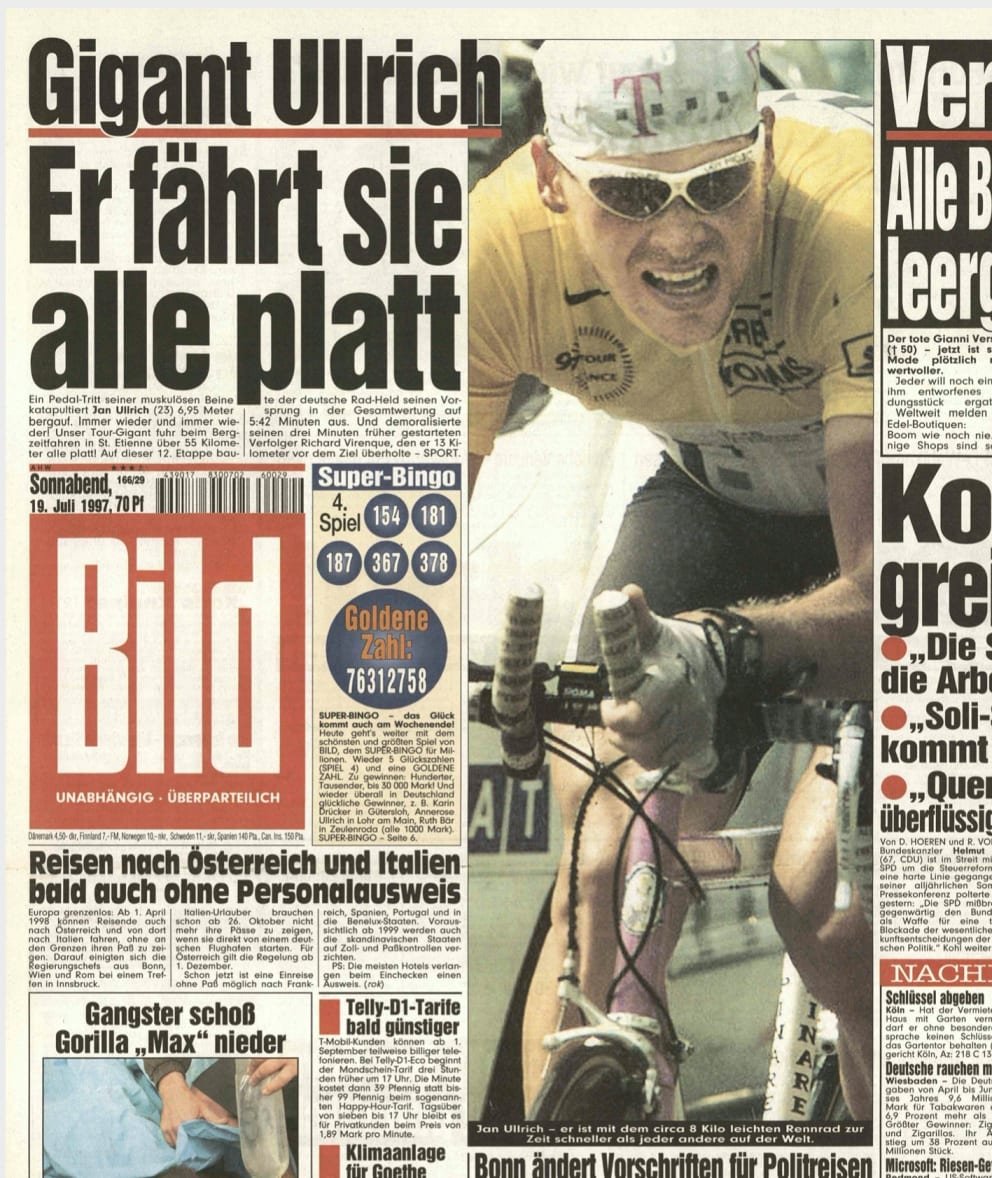

Note: Ullrich, like most riders racing at the time, later admitted to the used of banned substances during his career. His results have not been scrapped, so Ulle war sauber(?)
Video:
Video:
Sources: cyclist.co.uk/in-depth/tour-… bikeraceinfo.com/tdf/tdf1997.ht…
washingtonpost.com/wp-srv/sports/…
Jan Ullrich: The Best There Never Was, Daniel Friebe
washingtonpost.com/wp-srv/sports/…
Jan Ullrich: The Best There Never Was, Daniel Friebe
• • •
Missing some Tweet in this thread? You can try to
force a refresh


